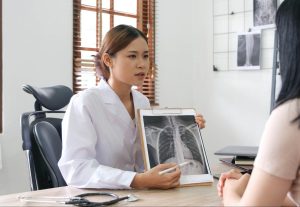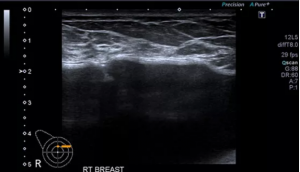Breast Cancer Diagnosis & Treatment in Singapore
What Are the Breast Cancer Treatment in Singapore?
Breast cancer treatments in Singapore encompass a range of approaches, including surgery, chemotherapy, radiotherapy, endocrine therapy, targeted therapy, and immunotherapy. Each treatment is recommended based on individual patient needs, depending on the type and stage of cancer, to help improve quality of life.

Breast Cancer Treatment: Chemotherapy
Chemotherapy involves using drugs to destroy malignant cancer cells. These medications target tumour cell vulnerabilities compared to normal cells. The Achilles heel of cancer cells is that they need various mechanisms to grow faster, repair themselves, utilise certain nutritional pathways, increase their blood flow, reduce cell death signals, and evade immunity. Chemotherapy and other kinds of breast cancer treatments in Singapore hinge on these and other mechanisms to attack and kill the cancer cells.
This may help reduce the risk of recurrence and improve the overall survival by treating any cancer cells that may still be present but not be picked up by blood or a radiological test.
This may offer potential advantages, particularly for larger tumours. The oncologists would be able to downstage the cancers, making them smaller, so that there is an option of breast conservation for some patients. In addition, being able to assess the tumour response to drug treatment allows some adjustment to therapy for some groups of breast cancer patients. Patients who already have large locally advanced breast cancers affecting the skin, chest wall, or with large lymph nodes are advised to have chemotherapy first to maximise the chance of clearance at surgery. Sometimes, a course of further chemotherapy may still be offered after surgery in certain subtypes of breast cancer.
This is used as a first-line treatment strategy in certain situations when the breast cancer has already spread to distant organs and sites (stage IV disease).
Typically, chemotherapy regimens may take three to six months and are often administered in ‘cycles’. Administering the medications with a rest of one to three weeks allows the patient’s own cells to recover before the next drug administration. Some cytotoxic cancer drug treatments may be administered as a short infusion, while some may take several hours. Most of the approaches are offered in an outpatient setting.
The side effects of chemotherapy may vary depending on the drug type and regimen. However, these side effects can be managed with expert assistance. Please feel free to discuss this with your doctor or specialist to address your concerns.
Sometimes, in early-stage cancers, the necessity of chemotherapy may not be apparent. In these cases, the doctor may suggest specific genomic tests to be done on your tumour tissue that can help assess the risk of recurrence and help you make a decision about chemotherapy. Your treating doctor will be able to help you understand when you need these tests.

Hormone Therapy
Anti-cancer hormone therapy, also known as endocrine therapy, targets the oestrogen (estrogen) signalling that hormone-sensitive breast cancer cells need for growth. Utilising drugs that block this pathway is usually one of the strategies in breast cancer treatment in Singapore.
Breast cancers that utilise this signalling pathway are identified on the tumour cell staining as oestrogen receptor-positive (ER-positive) and / or progesterone receptor-positive (PR-positive). This antibody test involves staining the tumour cells with colour. The intensity and percentage of cells stained may be reflected in the pathology report.
There are many studies involving cancer patients which have shown improved survival for women with hormone-sensitive breast cancer taking these drugs for a period of time. Common oral medicines that are often prescribed include tamoxifen for women before and after menopause and aromatase inhibitors such as anastrozole (Arimidex), exemestane (Aromasin), and letrozole (Femara) for postmenopausal women. These drugs are used in both early and advanced stages of breast cancer.
There are also other hormone therapies used in the advanced cancer setting, such as fulvestrant (Faslodex), which comes in the form of intra-muscular injections. Some types of hormonal treatment may help by suppressing the ovaries from producing hormones, either through surgery, radiotherapy, or medications. In general, the side effects of hormonal therapy drugs may vary depending on the type but may be tolerable and manageable.
When it comes to treating advanced stages of breast cancer, the doctor may recommend a group of drugs known as CDK4/6 inhibitors (namely palbociclib (Ibrance), ribociclib (Kisqali), and abemaciclib (Verzenio) targeting the enzymes CDK4 and CDK6 which are important in cell division. These oral drugs may be combined with the hormonal therapy described above (aromatase inhibitors, tamoxifen, fulvestrant). The side effects of these drugs may be tolerable and manageable. Feel free to consult your doctor for an in-depth discussion of the potential side effects so you can better understand them.
Targeted Treatments
Cellular growth and metabolism require multiple signalling pathways. Cancer cells may sometimes hijack these signals to gain an advantage over normal cells, resulting in tumour cell proliferation.
One of the established targeted pathways for breast cancer treatment is the HER2 (also known as erbB2) signalling pathway. About 20 to 25% of breast cancer cells amplify the HER2 gene in the cancer cell, which may result in an excess of the HER2 growth-promoting protein being expressed on it. This hyperactivation of the cellular growth engine makes these tumours known as HER2-positive breast cancers, which tend to behave more aggressively and are likely to spread early to lymph nodes and other organs, including the brain.
Trastuzumab (Herceptin) is a monoclonal antibody directed against the HER2 protein. Approved in 1998 to block this particular signalling pathway, it is usually given intravenously, though there is now a subcutaneous formulation that allows for easier administration. When used with chemotherapy, it may result in high tumour response rates and better success rates in both the early and advanced stage settings of breast cancer treatment in Singapore.
Since then, other HER2 targeting drugs have been approved, including ado-trastuzumab (T-DM1 or Kadcyla) and pertuzumab (Perjeta), both given intravenously, and neratinib (Nerlynx) and lapatinib (Tykerb), both given orally. These drugs are used in different settings and stages of your breast cancer treatment, and your treating doctor will be able to determine the drug suited for your condition.
The side effects of anti-HER2 agents are generally mild but can sometimes be severe. For example, trastuzumab, pertuzumab, or ado-trastuzumab can cause heart weakening or heart failure, making monitoring of cardiac function important during treatment.
Other targeted therapeutic agents against other pathways have also been developed for use in advanced breast cancer. These include the following:
Oral drugs approved for use in advanced breast cancers that are HER2-negative and often helpful in the triple-negative breast cancer subtype. These individuals may also carry a germline BRCA gene mutation (an inherited mutation in the BRCA gene that helps in DNA repair).
This is an oral drug used in combination with the hormonal therapy drug fulvestrant (Faslodex) in hormone receptor-positive HER2-negative advanced breast cancers which carry a PIK3CA mutation. The PI3K/AKT/mTOR pathway is a signalling pathway for cellular growth and metabolism. Inhibition of this pathway can result in tumour suppression. About 30 to 40% of breast cancers have been found to have this PIK3CA gene mutation.
An oral drug used in combination with exemestane (Aromasin) in hormone receptor-positive HER2-negative advanced breast cancers. By inhibiting the protein mTOR, it helps slow down cell proliferation and can also limit the growth of new blood vessels into tumours, depriving them of nutrients.
All these targeted therapies may have distinctive side effect profiles, and your doctor will be able to help you decide which is suitable for your condition.
Immunotherapy drugs harness the body’s own immune system to recognise and kill cancer cells. This class of drugs, when used in conjunction with chemotherapy, has been found to be helpful in the subtype of triple-negative breast cancers (oestrogen and progesterone receptors negative, HER2 negative).
Radiation Therapy
Radiation therapy, or radiotherapy, uses high-energy X-rays (radiation) to help treat breast cancer. In Singapore, post-surgery radiotherapy is recommended following a lumpectomy (breast conservation surgery) or, in certain cases, after a mastectomy when the risk of locoregional recurrence is high, such as with large tumours or significant lymph node disease. The therapy is typically administered over several weeks, and through detailed planning of the radiation field, it avoids the main organs as far as possible.
Radiotherapy is also a critical treatment used in advanced stages of breast cancer to help alleviate certain conditions, such as bone pain or nerve compression in the spinal cord. Brain metastases from breast cancer may often require radiotherapy as well. Focal radiation to selected tumour sites, known as stereotactic radiotherapy, may be utilised in some situations to help minimise treatment side effects.
This approach is part of the strategy for breast cancer patients in Singapore, including those with triple-negative breast cancer, to help provide targeted and helpful management of the disease.
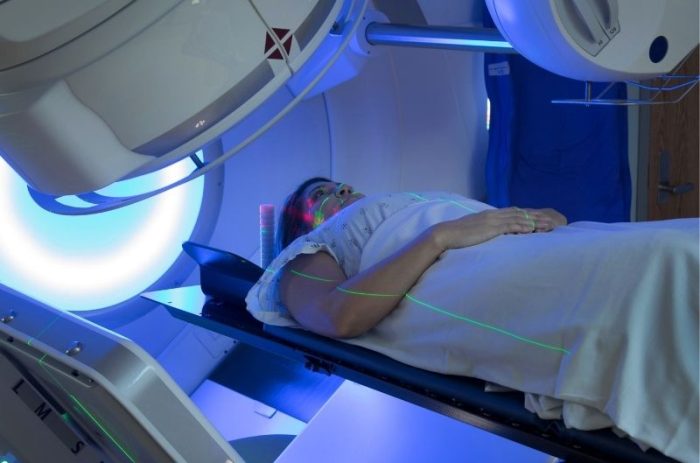
What Are the Signs and Symptoms of Breast Cancer?
Breast cancer is the leading cause of cancer in women both in the developed and the developing world. Over the past 40 years, the incidence of breast cancer in Singapore has more than doubled from 25 to 65 per 100,000 women. It accounts for about 1 in 3 cancers in women locally, with rates beginning to increase after the age of 40. However, young-onset breast cancer occurring in women in their 20s and 30s can still happen, and the number of reported cases is increasing in this age group. Notably, men can also get breast cancer, but it is far less common.
The most common sign of breast cancer is a lump, which may often be painless but can feel tender to the touch or painful to a certain extent. Other signs may include nipple retraction, nipple discharge, swollen lymph nodes in the underarm area (can occur even before feeling a breast mass), swelling of all or part of the breast, skin redness over the breast, which can resemble inflammation and/or skin dimpling which looks like an orange peel (peau d’orange).
The key is early detection because the chances of recovery may be higher with minimal treatment when found at an early stage. When found at stage 0, chemotherapy can even be avoided.
Breast Cancer Screening
Breast screening is often recommended as early detection is the key to finding cancers at an earlier stage when treatments can be less complex and may result in an optimal outcome. Mammograms are the mainstay of screening. It is a simple test which uses X-rays to take pictures of the breasts at various angles and requires compression of the breasts between paddles to reduce the thickness. The radiation dose may be very low; consequently, there may be little health risk. An abnormal finding on a mammogram may not automatically mean one has cancer, and most of these turn out to be no cause for worry.
Screening Frequency:
- 50 – 69yo – Mammogram once every two years
- 40 – 49yo – Feel free to discuss the effects, limitations, and potential risks with your doctor. If you decide to do it, it is advisable to have it done annually.
Although breast self-examination is no longer part of formal screening recommendations, it is advisable to familiarise oneself with the normal appearance and feel of one’s breasts so that you can recognise any changes in a timely manner. MRIs can be added as an adjunct to mammograms to screen women who may have a higher risk, especially those who potentially carry a genetic mutation (e.g. a BRCA gene mutation), which confers an increased lifetime risk for breast cancer.

What Are the Types of Breast Cancer?
Breast cancer typically starts when abnormal cells in the breast begin to grow uncontrollably, forming a tumour. Most often, it may arise from the milk ducts of the breast (ductal cancers) or less commonly, from the glands that make the milk (lobular cancers).
There are other kinds of breast cancers, such as malignant phyllodes tumours, or tumours which may start in other kinds of tissue residing in the breast, such as lymphomas (lymphatic tissue) or sarcomas (connective tissue, blood vessels).
Paget’s disease is a rare form of breast cancer which may arise in and around the nipple. The subtypes of breast cancer based on the appearance of the tissue obtained upon biopsy may include invasive ductal cancers, which comprise about 80%, with the frequency of invasive lobular cancers being much lower (about 10%).
Breast cancers can also occur very early, such as ductal carcinoma in-situ (DCIS) tumours. DCIS are stage 0 cancers and may not have the ability to spread to distant sites away from the breast. They may result in an optimal prognosis
Triple-negative Breast Cancer
Triple-negative breast cancer (TNBC) is a type of breast cancer characterised by the absence of oestrogen receptors, progesterone receptors, and the HER2 protein. This form of cancer may be challenging to address because it may not respond to hormonal therapy or drugs that target HER2 receptors, which are helpful in other types of breast cancer. TNBC could be more aggressive and has a higher likelihood of recurrence, highlighting the importance of timely treatment.
Patients with TNBC may benefit from a combination of treatments, including chemotherapy, which remains the recommended approach to address this subtype. Recent research is also exploring the potential of immunotherapy and targeted therapies to improve outcomes for patients with triple-negative breast cancer.
How is Triple-negative Breast Cancer Diagnosed?
Diagnosing triple-negative breast cancer may involve a series of steps to help identify the subtype of the tumour. Initially, a biopsy is performed, where a breast tumour sample is examined under a microscope. Special stains are then used to test for the potential presence of hormone receptors and the HER2 protein. If these tests come back negative for oestrogen and progesterone receptors as well as HER2, the cancer may be classified as triple-negative.
Further diagnostic tests, such as imaging scans, including mammograms, ultrasounds, and MRIs, may be used to assess the extent of the cancer. These tools may help in planning the treatment strategy and in monitoring the response to treatment.
Patients with TNBC may benefit from a combination of treatments, including chemotherapy, which remains the recommended approach to address this subtype. Recent research is also exploring the potential of immunotherapy and targeted therapies to improve outcomes for patients with triple-negative breast cancer.
What Are the Causes and Risk Factors of Breast Cancer?
There are various risk factors, but many who develop breast cancer may not have any of them. Also, there is no specific risk factor that is the direct cause, and often it may be a combination of a few or none at all. Some of the factors which may increase one’s risk are as follows:
Age – The risk increases as one gets older.
Gender – It is 100x more common in women than in men.
Oestrogen Levels – Higher endogenous oestrogen levels are often associated with increased risk, especially for hormone receptor-positive breast cancer.
Dense Breasts – Those with dense breasts seen on mammograms may have increased risk.
Early age when menses first started or late age at menopause.
Women who have not had any children before.
Women who had their first child at a later age.
A personal history of breast cancer.
A family history of breast cancer in first-degree relatives (mother, sister, father), especially if diagnosed at a young age.
Those who carry an inherited genetic mutation which predisposes one to breast cancer.
Alcohol consumption.
Exposure to radiation of the chest as a form of treatment for other cancers like Hodgkin lymphoma or due to unforeseen circumstances, particularly at a young age, can increase the risk.
Lifestyle changes may help in reducing or eliminating some of the risk factors, such as:
Breastfeeding – Some studies suggest that breastfeeding may have a protective effect against breast cancer.
Regular physical activity – Maintaining a healthy weight may provide some level of protection.
Limit or abstain from alcohol intake.
While there is no substantial evidence of a link between diet and breast cancer, a healthy and well–balanced diet, including vegetables, fish, and less red meat, may be helpful for general health and well-being.
What Are the Stages of Breast Cancer?
Knowing the stage of breast cancer is paramount to understanding its treatment strategy and prognosis. Staging is based on the tumour size, spread to regional lymph nodes, and distant organs. It is also determined by the oestrogen and progesterone receptor status, HER2 status, and cancer grade (how different the cells look compared to normal cells). Stage 0 may refer to non-invasive DCIS, stage I-III may refer to invasive breast cancer, which is confined to the breast and/or nearby (regional) lymph nodes, and stage IV may refer to breast cancer that has potentially spread to distant organs and sites.
Oncologists at OncoCare with Clinical Interests in Breast Cancer
Early detection is the key to a faster recovery. You should seek the right oncologists and breast cancer specialists to assist you or your loved ones with the most suitable cancer treatments to treat your condition. These medical professionals will be able to diagnose the stages of your breast cancer, advise on the best treatment regime and possible side effects, and support you at every phase of your recovery process.
In choosing the right oncologist and breast cancer specialist, you need to consider their years of experience in the field, knowledge of the latest and most advanced procedures (including clinical trials) and ability to prescribe the most appropriate treatment regimes for your specific condition.
OncoCare’s team of oncologists have decades of specialist experience in the field of breast cancer. Our specialists are trained in the foremost oncology institutes in the world, including the Dana Farber Cancer Institute (Harvard Medical School) and the John Hopkins Medical Institute.
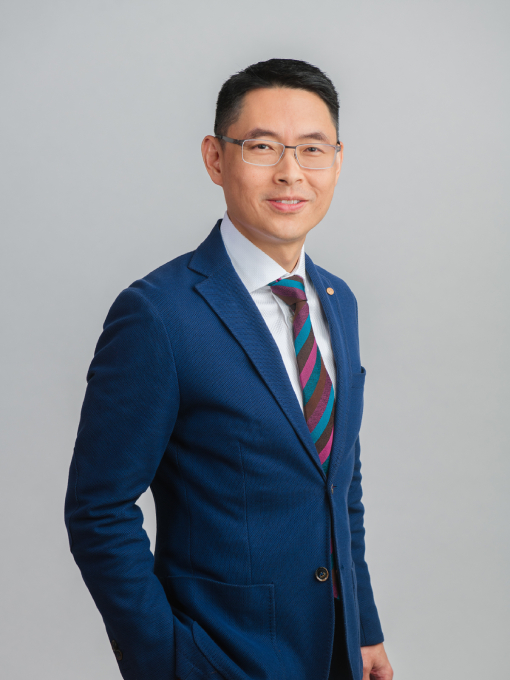
Senior Consultant, Medical Oncologist
MBBS (Singapore) – M.Med (Singapore) – MRCP (United Kingdom) – FAMS (Medical Oncology) – MHsc (Duke, USA)
Dr Wong Nan Soon has over 15 years of experience in diagnosing and managing a wide range of cancer. He specialises in breast cancer and gastrointestinal cancers, such as colon cancer, rectal cancer, anal cancer, biliary cancer, pancreatic cancer, liver cancer, GI stromal cancers (GIST), and neuroendocrine cancer. Dr Soon also has experience treating patients with lung cancer, kidney cancer, uterine cancer, cervical cancer, and ovarian cancer.
In 1994, he graduated from the Faculty of Medicine, National University of Singapore and earned his Master’s in Internal Medicine and Membership of the Royal College of Physicians in the United Kingdom. In 2003, he completed advanced specialty training in general medical oncology.
Following his graduation, he completed a 1 year clinical fellowship sub-specialising in breast medical oncology in Canada, where he trained under Professor Kathleen Pritchard, world renowned breast oncologist.
- Novartis Oncology Young Canadian Investigator Award 2005
- Canadian Association of Medical Oncology Annual Meeting Best Poster Award 2005
- Chairperson, Medical Treatment Fund Committee, Singapore Cancer Society 2007
- Clinical teacher, Yong Loo Lin School of Medicine, National University of Singapore from 2006-2011
- Adjunct Associate Professor in the Department of Clinical Sciences, Duke-National University of Singapore, 2011-2013
- Visiting Senior Consultant, KK Women’s & Children’s Hospital, Singapore 2010-2011
- Senior Consultant, Dept of Medical Oncology, National CancerCentre Singapore 2009-2011
- Visiting Consultant, Dept of Medical Oncology, National Cancer Centre Singapore 2012-2014
- Committee member, Specialist Training Committee (Medical oncology), Ministry of Health from 2009 to 2012
- Invited lecturer at Nanyang Polytechnic School of Health Sciences
- Director of Public and Patient Education, National Cancer Centre Singapore 2008-2011
- Deputy Director in the Division of Community Outreach and Philanthropy, National Cancer Centre Singapore
- Vice President, Singapore Society of Oncology 2011-2012
- Board Member, Chapter of Medical Oncologists of Singapore 2009-2012
- Honorary Secretary, Chapter of Medical Oncologists, College of Physicians, Academy of Medicine, Singapore 2007-2008
- Member, Clinical Trials Steering Committee, National Cancer Centre Singapore, 2008-2011
- Member, Singapore Society of Oncology
- Member, American Society of Clinical Oncology

Senior Consultant, Medical Oncologist
MBBS (Singapore) – M.Med (Singapore) – MRCP (United Kingdom) – FAMS (Medical Oncology)
Dr. Tan Sing Huang is a Senior Consultant Medical Oncologist who has more than 16 years experience in managing a wide range of cancers. Prior to joining OncoCare Cancer Centre, she held the position of Senior Consultant in the Department of Hematology-Oncology National University Cancer Institute, Singapore (NCIS). She was also Assistant Professor, Yong Loo Lin School of Medicine, National University of Singapore.
During her work at NCIS, she had continued to take care of patients with a wide variety of cancers, including Breast cancers, Gynecological cancers, Lung cancers and Gastrointestinal cancers (colon, rectum, pancreas, liver, gastric) although her primary interest is in Women’s Cancers. As a result of her clinical efforts in NUH, she was awarded the Sunny Side-Up and Sunny Side-Up WOW Awards for exemplary patient feedback.
She led the Senior Residency Education division in NCIS as its Program Director since 2012 till 2016, served as Co-Chairman for the NCIS Clinical Competency Committee and also as panel member for national selection of Medical Oncology trainees. In addition, she participated as an examiner for undergraduate final medical exams. As a result of her contributions to education, she was awarded the NUH Teaching Excellence Award in 2014.
She held the post of Vice President of the Singapore Society of Oncology since 2013 till 2018.
She is also a long-standing current active Committee Member and more recently Deputy Chair of the National Healthcare Group Domain-Specific Ethics Review Board since 2020 which reviews Medical Oncology clinical trial protocols for the hospitals.
She was also principal investigator of several multi-center studies investigating new investigational drugs in HER2-positive breast cancers as well as being co-investigator of several multi-centre clinical trials in lung, colorectal and breast cancers.
Her interest in translational research led to spending time with the RUNX research group in Singapore under a National Medical Research-Singapore (NMRC) Totalisator Medical Research Fellowship Award. She then went to Johns Hopkins Sidney Kimmel Comprehensive Cancer Centre in Baltimore in 2006-2007 where she was involved in epigenetics research and also gained clinical experience from attachments with the Breast Cancer Division of Johns Hopkins Medical Institute.
She has been awarded the Research-Investigator-Scientist Enabler (RISE) Grant Scheme Award from 2008 to 2010, and the Junior Investigator Protected Time Award in 2011.She won a Merit Award for her Oral Presentation at the 10th International Conference of The Asian Clinical Oncology Society in Seoul on oncogenic mutation profiling changes pre- and post-chemotherapy in breast cancers. She was given the National Medical Research Council Clinician Investigator Salary Support Program (CISSP) Award from 2012 to 2014. She went on to obtain a number of independent grants since 2008 studying methylation patterns, high-throughput oncogenic mutation profiling and the effects of chemotherapy on cognition in cancer patients.
She has contributed chapters on chemotherapy treatment of metastatic breast cancer in international textbooks such as Diseases of the Breast. In addition, she has written and contributed to publications which have appeared in local and international journals including Clinical Cancer Research and Annals of Oncology.
She has also given many local and overseas talks as an invited speaker including in China, Vietnam and Brunei. She has also chaired conferences and been an invited speaker for both local and overseas conferences. She is fluent in English, Mandarin and Hokkien and is able to speak some Malay and Bahasa. She has taken care of patients from many regional and overseas regions including Indonesia, Vietnam, Myanmar, China, Bangladesh, Sri Lanka, India and Russia.
- Senior Consultant at National University Cancer Institute (NCIS) prior to joining OncoCare Cancer Centre
- Assistant Professor, Yong Loo Lin School of Medicine, National University of Singapore prior to joining OncoCare Cancer Centre
- Program Director, Senior Residency Education Division, National University Cancer Institute 2012-2016
- Deputy Chair National Healthcare Group Domain Specific Research Board B1 since 2020 and Committee Member since 2011
- Vice President of the Singapore Society of Oncology 2013-2018
- Merit Award for Oral Presentation 10th International Conference of the Asian Clinical Oncology Society (Seoul, Korea); 2012
- Received the Research-Investigator-Scientist Enabler (RISE) Grant Scheme Award 2008
- Awarded the National Medical Research-Singapore Totalisator Medical Research Fellowship Award 2003-2004
- Awarded the Sunny Side-up and Sunny Side-up WOW Awards for clinical patient care, National University Hospital
- Committee member inaugural Breast Day Symposium 2016, Singapore
Chairman for Best of ASCO conference, Singapore 2015 - Awarded the NUH Teaching Excellence Award 2014
- Member of the Singapore Cancer Network (SCaN) Breast Cancer Guidelines Workgroup 2014 and Section Lead for guidelines pertaining to adjuvant bisphosphonate use
- Postgraduate training at Johns Hopkins Medical Institute, Baltimore 2006-2007
Member, Singapore Society of Oncology - Member of the American Society of Clinical Oncology (ASCO)
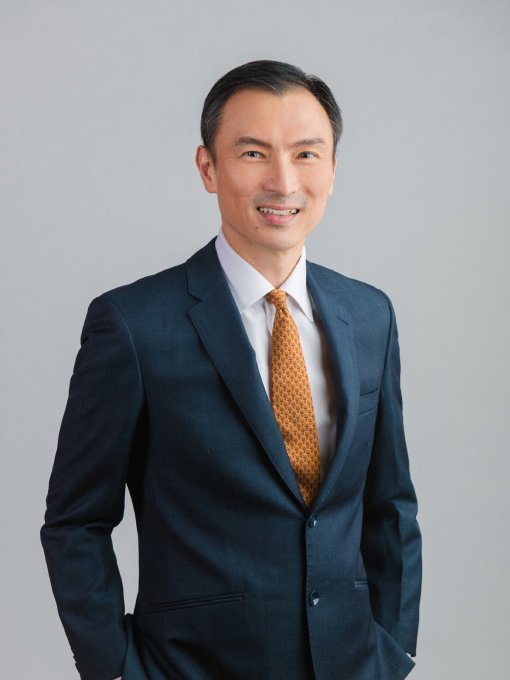
Senior Consultant, Medical Oncologist
MBBS (Singapore) – M.Med (Singapore) – MRCP (United Kingdom) – FAMS (Medical Oncology)
Dr Peter Ang graduated from the National University of Singapore in 1991 and then earned his Master of Medicine in the United Kingdom in 1997. He was awarded the Ministry of Health Manpower Development Programme (HMDP) Scholarship to train at Dana Farber Cancer Institute, where he focused on general oncology with a focus on breast cancer and cancer genetics.
He is recognised for his leadership and expertise as a breast cancer specialist doctor, and was the leading cancer specialist of the Breast Cancer Workgroup (2002) for National Cancer Centre, Singapore and Singhealth cluster. He is involved in providing comprehensive oncology information and excellent care for patients with a wide range of cancers including lung cancer, stomach cancer, colorectal cancer, lymphoma, kidney cancer, breast cancer, ovary cancer, uterus cancer, and cervix cancer. He has also been actively involved in clinical and translational cancer research for many years, in breast, colon, lung and other cancers.
- Graduated from the National University of Singapore in 1991.
- Obtained Master of Medicine (Internal Medicine) and Membership of the Royal College of Physicians (United Kingdom) in 1997.
- Awarded the Ministry of Health Manpower Development Programme (HMDP) Scholarship to train at Dana Farber Cancer Institute, (Teaching Affiliates of Harvard Medical School), Boston USA 2000-2001.
- He was the leading breast cancer oncologist of the Breast Cancer Workgroup (2002) for National Cancer Centre and Singhealth cluster and was involved in the cluster Breast Cancer Health Management Plan (2003). He was program leader for the Public Cancer Education with Singhealth Cancer Service Development Line (2004).
More about Breast Cancer
Get experts’ insights on cancer treatment, research breakthroughs, nutrition advice, healthy living and more…



